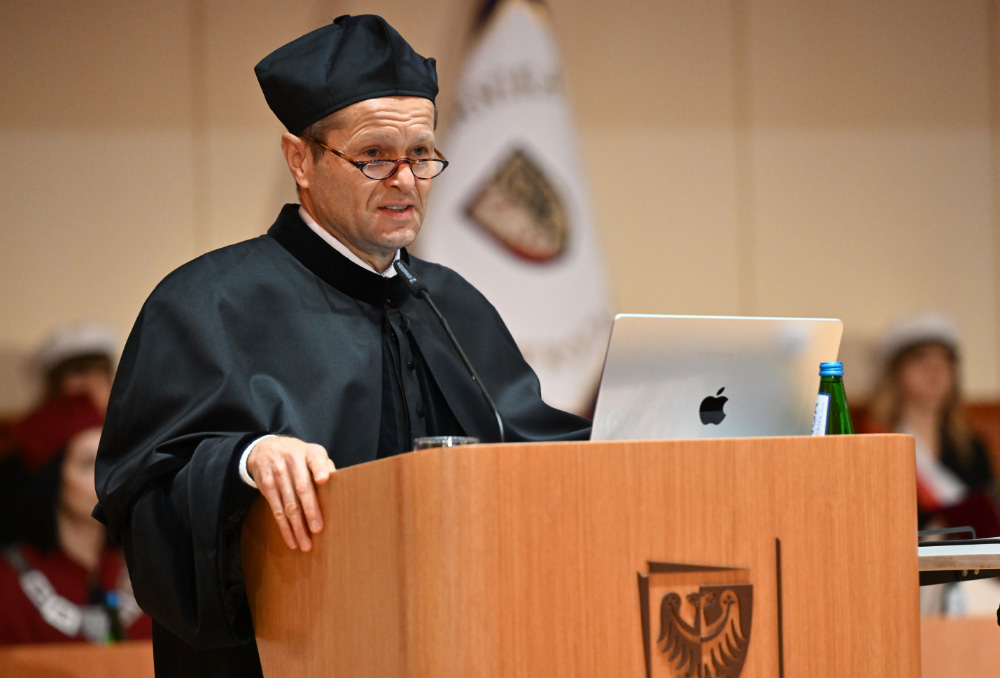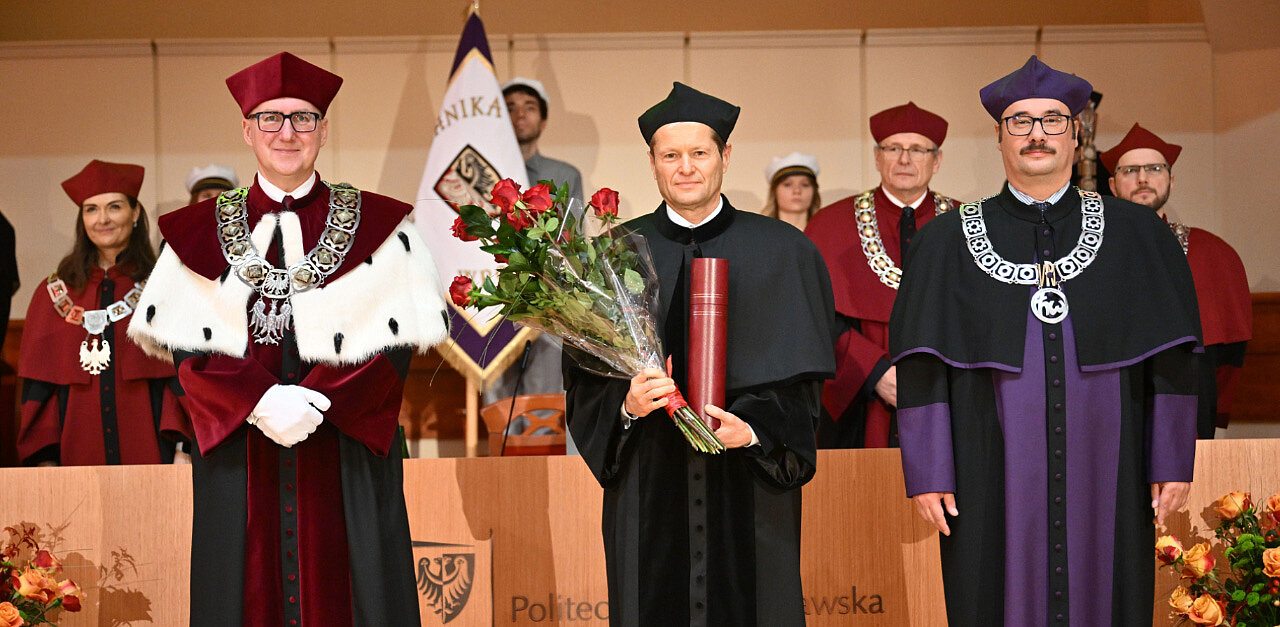On November 15, Prof. Ferenc Krausz received an honorary doctorate from Wrocław University of Science and Technology in a festive ceremony. The title bestowed on the Hungarian researcher during the Celebration Day of the Wroclaw Tech is in recognition of his outstanding achievements for world science. In particular, for Prof. Krausz’s development of experimental methods for the generation and measurement of light pulses of attosecond duration to study the dynamics of electrons in matter. In addition, his long-standing and close cooperation with the scientific community of the Wrocław University of Science and Technology was recognised.
Professor Rafał Walczak, Dean of the Faculty of Electronics, Photonics and Microsystems, was the promoter of the honorary doctorate.
In November 2023, Prof Krausz was a guest at the Interdisciplinary Science Seminar of the Wrocław University of Science and Technology. At our university, he gave a lecture entitled ‘Attosecond Science: from accelerating electronics to studying human health’.
The scientist’s visit was combined with the official launch of a special research group at the Wrocław Tech as part of the prestigious Max Planck Partner Group programme. The leader of the team, specialising in the construction of ultrafast lasers, is Maciej Kowalczyk, PhD from the Faculty of Electronics, Photonics and Microsystems, who collaborated with Prof Krausz on a postdoctoral fellowship in Germany in 2020–22.
“Prof. Ferenc Krausz is therefore deeply and sincerely interested in the long-term continuation and revitalisation of the collaboration, especially in the field of ultrashort pulse lasers in the mid-infrared. His passion for years has been the detection of cancer cells in plasma using precisely these ultrashort laser pulses. If this programme is successful, it will be another milestone in world science, no doubt worthy of the next Nobel Prize,” – said Prof. Rafał Walczak.
During the ceremony, Prof Ferenc Krausz gave a lecture entitled ‘Basic research addressing greatest challenge of our time’.
“Thank you very much for this award. It is a great pleasure and honour for me. In my speech, I would like to touch on the future of Europe and its competitiveness in terms of research and innovation. Professor Arkadiusz Wójs has already spoken about these issues in his speech, and I would like to add my thoughts to this”, said the Nobel Prize winner. “My presentation is also a praise of basic research, which is the only human activity that leads to breakthroughs that can fundamentally affect our lives,” he added.
Among the most important challenges facing humanity, Prof Krausz mentioned stopping global warming, preserving biodiversity, sustaining development and protecting the health of all people regardless of the wealth of the country they live in.

